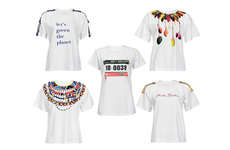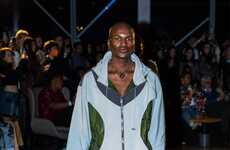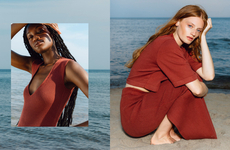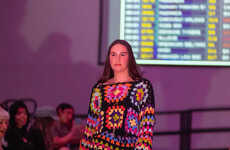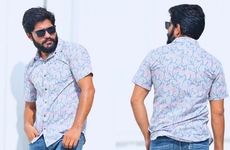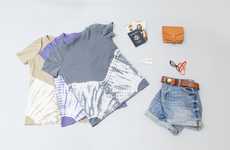
David Peck Takes Inspiration from and Gives Back to Ugandan Villagers
Omar Yusuf — August 9, 2011 — Social Good
References: davidpeckcollection & treehugger
After seeing the fascinating and philanthropic work of photojournalist Jaime Collier in Uganda and throughout South-Western Africa, David Peck knew he had to contribute in some way, however small.
The Houston-based fashion designer instinctively drew inspiration from the local fashion and savoir-faire of Kampala, Uganda's capital. Yet, despite being home to a vibrant, often optimistic peoples, the landlocked nation has its share of domestic unrest; a problem David Peck's 'Crop' initiative hopes to assuage.
Short for "creative opportunities," Peck's ethical clothing line marries Ugandan fashion sense with his own familiarity with textiles. Made from organic, certified fair trade materials, Peck's entire Crop line not only brings Southern African vogue into the international limelight, but sheds perspective on the humanitarian issues plaguing the region. With 10% of sales being redirected back to the locals who served as Peck's muses, it seems as though the fashion line has earned its "ethical" moniker.
The Houston-based fashion designer instinctively drew inspiration from the local fashion and savoir-faire of Kampala, Uganda's capital. Yet, despite being home to a vibrant, often optimistic peoples, the landlocked nation has its share of domestic unrest; a problem David Peck's 'Crop' initiative hopes to assuage.
Short for "creative opportunities," Peck's ethical clothing line marries Ugandan fashion sense with his own familiarity with textiles. Made from organic, certified fair trade materials, Peck's entire Crop line not only brings Southern African vogue into the international limelight, but sheds perspective on the humanitarian issues plaguing the region. With 10% of sales being redirected back to the locals who served as Peck's muses, it seems as though the fashion line has earned its "ethical" moniker.
Trend Themes
1. Ethical Fashion - Creating fashion lines that are made from organic, certified fair trade materials to shed perspective on humanitarian issues.
2. Collaborative Design - Drawing inspiration from local fashion and culture to create fashion lines that support and give back to the communities that inspired them.
3. Philanthropic Consumerism - Redirecting a percentage of sales back to the communities that served as inspiration for fashion lines.
Industry Implications
1. Fashion - Incorporating ethical practices and giving back to communities in fashion design and production.
2. Textiles - Using organic, certified fair trade materials to create sustainable and socially responsible fashion lines.
3. Photography - Partnering with photographers and photojournalists to bring awareness to humanitarian issues and inspire fashion designs.
4.9
Score
Popularity
Activity
Freshness

